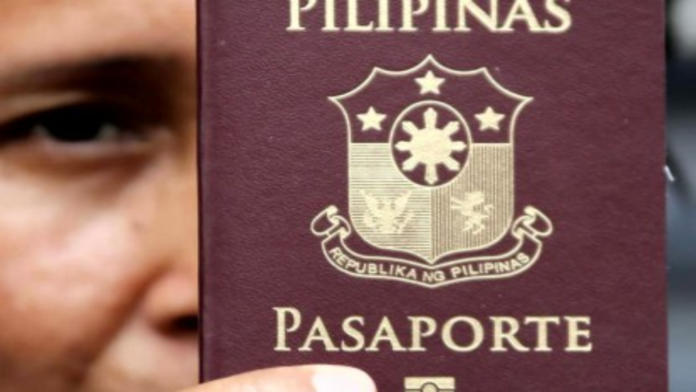President Ferdinand R. Marcos Jr. has signed Republic Act (RA) 11983, or the New Philippine Passport Act, to streamline the passport application process in the country.
RA 11983 was signed by Marcos on March 11, repealing RA 8239 or the Philippine Passport Act of 1996, aiming to develop a new generation of Philippine passports that are at par with international standards, Communication Secretary Cheloy Garafil said in a statement on Friday.
Garafil said the new passport law makes the application process for regular passports readily accessible, especially for some individuals, including senior citizens, persons with disabilities (PWDs), and overseas Filipino workers (OFWs).
“The new passport law now authorizes DFA (Department of Foreign Affairs) to provide offsite and mobile passport services in areas outside of the consular offices and foreign service posts,” she said.
The new law mandates the DFA to accommodate the applications of regular passports by senior citizens, PWDs, pregnant women, minors aged 7 years and below, solo parents, OFWs, and individuals with emergency and exceptional cases, she added.
RA 11983 also mandates the DFA to establish an electronic one-stop shop on its website for easy application, and gathering and submission of requirements.
Under the new law, incumbent government officials and employees, as well as members of their families, may hold two passports simultaneously, Garafil said.
“Regular passports are issued to Filipino citizens who are not eligible or entitled to diplomatic or official passports, including government officials or employees going abroad for pleasure or other personal reasons,” she said.
RA 11983 enumerates the prohibitions and penalties relating to forgery, withholding, and improper use of passports and other travel documents, as well as the unfair and discriminatory practices committed by DFA officers.
Garafil said any person or entity without legal authority who confiscates, retains or withholds any passport issued by the DFA shall face imprisonment of not less than 12 years and shall pay a fine of not less than PHP1 million but not more than PHP2 million.
She also noted that passport forgers will face 6 to 15 years of imprisonment and a fine of not less than PHP100,000 but not more than PHP250,000.
“For offenses relating to improper passport use and other travel documents, offenders will face 6 to 15 years of imprisonment and a fine of not less than PHP100,000 but not more than PHP250,000,” Garafil said.
On offenses relating to passport issuances, violators will face a prison term of 6 to 12 years and a fine of not less than PHP100,000 but not more than PHP250,000.
The law also outlined penalties for unfair and discriminatory practices in passport issuance, from suspension and dismissal from service, as well as a fine of up to PHP250,000 and six-year imprisonment at the maximum.
Malacañang has yet to release a copy of RA 11983.
Garafil said the new passport law takes effect 15 days after the completion of its publication, either in the Official Gazette or a newspaper of general circulation. (PNA)


